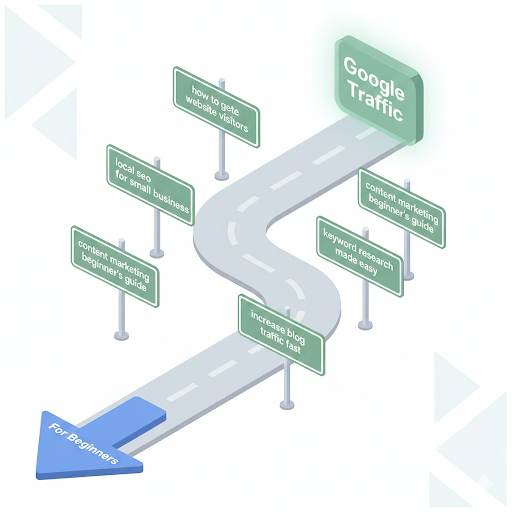Long Tail Keywords: The Easiest Way to Get Google Traffic for Beginners

Let’s be honest: SEO sounds complicated.
But if you’re just starting a blog and want real traffic from Google, there’s one simple trick that works better than anything else:
Using long tail keywords.
In this post, I’ll explain what they are, why they matter, and how you can use them—even if you’re totally new.
Let’s break it down together.
What Are Long Tail Keywords?

Long tail keywords are specific, longer phrases that people type into Google when they’re looking for something clear and direct.
Here’s a quick example:
Short keyword: blogging
Long tail keyword: how to start a blog for free on Blogger
See the difference?
The long version is more detailed.
Why You Should Care About Long Tail Keywords
Let’s say your blog is brand new.
Now you have a real shot.
Why? Because:
- It’s less competitive
- It attracts readers looking for real help
- It brings the right people to your blog
Long tail keywords give small blogs a chance to win.

Don’t Let Low Search Numbers Fool You
A common mistake beginners make is thinking:
> “This keyword only gets 100 searches per month.
Real-Life Long Tail Keyword Examples
Let’s make it crystal clear:
- Short: fitness tips
- Long tail: quick home workouts for moms with no equipment
- Short: affiliate marketing
- Long tail: how to start affiliate marketing with no experience
Long tail keywords are like answering real questions from real people.
And that’s exactly what Google wants.
How to Find Long Tail Keywords (Free & Easy)

You don’t need to pay for tools.
1. Google Suggestions
Start typing in Google and see what it suggests.
2. “People Also Ask” Section
Look for the box of questions Google shows in search results.
3. AnswerThePublic
Pop in a keyword, and it gives you tons of real questions people search for.
4. Reddit, Quora, and Forums
See what people in your niche are asking. Turn those into blog posts.
Where to Use Long Tail Keywords
Once you’ve found one, add it naturally in:
- Your blog title
- First 100 words of your post
- Subheadings
- Meta description
- A few times in the body
⚠️ Important: Don’t stuff the keyword everywhere.
Beginner Mistakes to Avoid
Let’s save you some pain:
- ❌ Don’t copy what big blogs are doing
- ❌ Don’t chase huge keywords with 100,000+ searches
- ❌ Don’t force keywords where they don’t fit
- ❌ Don’t ignore the reader’s real question
Focus on solving one small problem per post.
Final Thoughts: Use Long Tail Keywords to Grow Smarter
If you feel overwhelmed by SEO, don’t worry.
You don’t need to be an expert.
You just need to understand one thing:
And those readers are more likely to trust you, subscribe, and even buy from you later.
So next time you write a post, ask yourself:
> “What exact thing would someone search if they needed this?”
That’s your long tail keyword.
Use it. Build around it. And keep going.
Your traffic will come.





